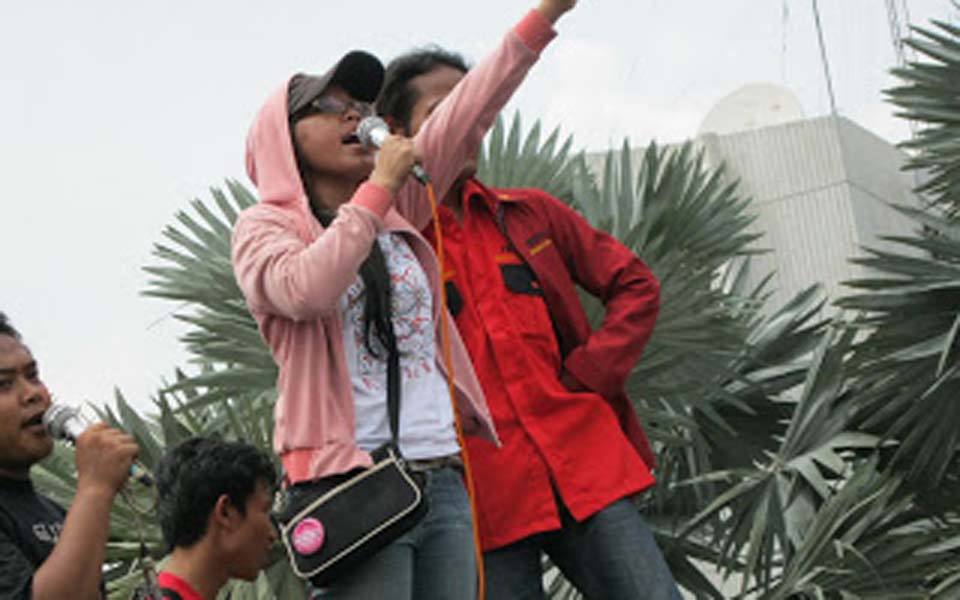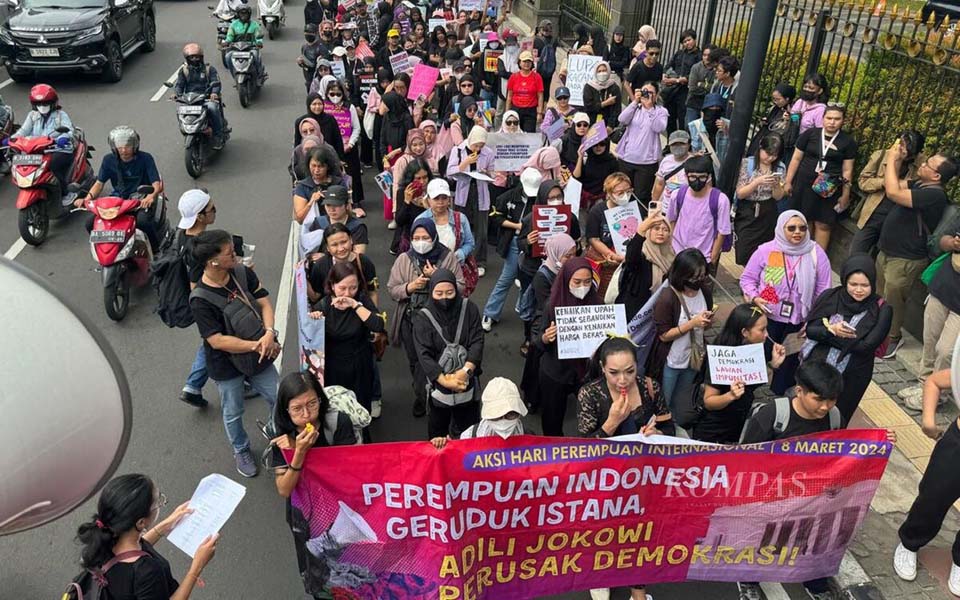Jakarta – In order get a message across to the public who will soon be under a new administration, around 20 children between 7 and 12 years of age from Cijeruk, Tapos and the Bogor Regency, participated in a demonstration commemorating International Women’s Day 2004 in Jakarta on Monday March 8. The demonstration was organised by the Mahardhika Women’s Working Group (Pokja Perempuan Mahardhika).
It was hoped that the presence of the children at the action would open the eyes of legislative candidates to encourage them to provide access to basic education by providing schools which are close to children living in remote areas.
The demonstration, which went on foot from the Hotel Indonesia roundabout then to the offices of the Coordinating Minister for Politics and Security, the offices of the Coordinating Minister for People’s Welfare and the Presidential Place, was to begin at around 12.30pm but was delayed by two-and-a-half hours until 3.30pm because they had to wait for farmers from Krawang and Bogor to arrive. The demonstrators who came from 22 different groups including students, farmers, workers, victims of land eviction and children, was coordinated by [labour and women’s activist] Dita Indah Sari.
On two occasions during the march, marshals had to given the children a chance to sit and rest so that they would not become too tired. During these breaks, poetry and speeches were read by the demonstrators.
No sympathy
The demonstration proceeded smoothly except for an incident in which a driver who was blocked by the demonstration received unsympathetic treatment by a staff member of the Japanese Embassy. As the rally passed, three Japanese citizens stood with their hands on their hips. They not only forced the driver out of his car, who had had to use the sidewalk in front of the Japanese Embassy to pass, but one of them kicked the vehicle and its driver. This resulted in an argument between embassy staff and the driver but it did not escalate into an major incident.
The front gates of the offices of the two ministries which the demonstrators were heading for were closed when they arrived. The demonstrators were only able to give speeches in front of the offices, although the secretary of the Coordinating Minister for People’s Welefare, Sutejo Yuwono, was prepared to meet with the victims of land evictions who are claiming a promise of financial assistance and rice from the Jakarta government.
According to Mardianti from the National Farmers Union, who is active in promoting the struggle of farmers in Cijeruk, the children who were participating in the demonstration have indeed had no formal schooling because the state schools nearest to them are located around three kilometres from their homes. As a substitute they only attended religious schools which start in the late afternoons. “It’s a long way, they have to change busses twice, so it is difficult for them to attend these schools”, he added.
The situation faced by children from Cijeruk, said two leaders of the action, Raihana and Junisih, is also being experience by children elsewhere. So from on top of a vehicle carrying the loud speaker system they called “Free education for all”.
They said that the important issues are fulfilling the obligations to study as proclaimed by the government in 1984, followed by the call to provide free health care, particularly for women and children, a guarantee of full wages for working women when they take menstrual or maternity leave, establishing free and safe abortion clinics and establishing day care centres for children. [They added that this] was because the anti-privatisation and anti-government movements are not paying attention to the interests of the people. (TRI)
[Translated by James Balowski.]















